IEEE Std 802.3bu-2016 Front Cover
Title page
Important Notices and Disclaimers Concerning IEEE Standards Documents
Participants
Introduction
Contents
1. Introduction
1.4 Definitions
1.5 Abbreviations
30. Management
30.2 Managed objects
30.2.2 Overview of managed objects
30.2.2.1 Text description of managed objects
30.2.3 Containment
30.2.5 Capabilities
30.15 Layer management for Power over Data Lines (PoDL) of Single Balanced Twisted-Pair Ethernet
30.15.1 PoDL PSE managed object class
30.15.1.1 PoDL PSE attributes
30.15.1.1.1 aPoDLPSEID
30.15.1.1.2 aPoDLPSEAdminState
30.15.1.1.3 aPoDLPSEPowerDetectionStatus
30.15.1.1.4 aPoDLPSEType
30.15.1.1.5 aPoDLPSEDetectedPDType
30.15.1.1.6 aPoDLPSEDetectedPDPowerClass
30.15.1.1.7 aPoDLPSEInvalidSignatureCounter
30.15.1.1.8 aPoDLPSEInvalidClassCounter
30.15.1.1.9 aPoDLPSEPowerDeniedCounter
30.15.1.1.10 aPoDLPSEOverLoadCounter
30.15.1.1.11 aPoDLPSEMaintainFullVoltageSignatureAbsentCounter
30.15.1.1.12 aPoDLPSEActualPower
30.15.1.1.13 aPoDLPSEPowerAccuracy
30.15.1.1.14 aPoDLPSECumulativeEnergy
30.15.1.2 PoDL PSE actions
30.15.1.2.1 acPoDLPSEAdminControl
45. Management Data Input/Output (MDIO) Interface
45.2 MDIO Interface Registers
45.2.7b Power Unit Registers
45.2.7b.1 PoDL PSE Control register (Register 13.0)
45.2.7b.1.1 Enable power classification (13.0.1)
45.2.7b.1.2 PSE Enable (13.0.0)
45.2.7b.2 PoDL PSE Status 1 register (Register 13.1)
45.2.7b.2.1 Power Denied (13.1.15)
45.2.7b.2.2 Valid Signature (13.1.14)
45.2.7b.2.3 Invalid Signature (13.1.13)
45.2.7b.2.4 Class Timeout (13.1.12)
45.2.7b.2.5 Overload (13.1.11)
45.2.7b.2.6 MFVS Absent (13.1.10)
45.2.7b.2.7 PSE Type (13.1.9:7)
45.2.7b.2.8 PD Class (13.1.6:3)
45.2.7b.2.9 PSE Status (13.1.2:0)
45.2.7b.3 PoDL PSE Status 2 register (Register 13.2)
45.2.7b.3.1 Invalid Class (13.2.15)
45.2.7b.3.2 PD Type (13.2.2:0)
45.5 Protocol implementation conformance statement (PICS) proforma for Clause 45, MDIO interface
45.5.3 Major capabilities/options
45.5.3.13b Power over Data Lines (PoDL) of Single Balanced Twisted-Pair Ethernet management functions
96. Physical Coding Sublayer (PCS), Physical Medium Attachment (PMA) sublayer and baseband medium, type 100BASE-T1
96.5.4.1 Transmitter output droop
96.8.2.1 MDI return loss
104. Power over Data Lines (PoDL) of Single Balanced Twisted-Pair Ethernet
104.1 Overview
104.1.1 Compatibility considerations
104.1.2 Relationship of PoDL to the IEEE 802.3 architecture
104.1.3 PoDL system types
104.2 Link segment
104.3 Class power requirements
104.4 Power Sourcing Equipment (PSE)
104.4.1 PSE types
104.4.2 PSE classes
104.4.3 PSE state diagram
104.4.3.1 Overview
104.4.3.2 Conventions
104.4.3.3 Variables
104.4.3.4 Timers
104.4.3.5 Functions
104.4.3.6 State diagram
104.4.4 PSE detection of a PD
104.4.4.1 Detection probe requirements
104.4.4.2 Detection criteria
104.4.4.3 Rejection criteria
104.4.5 PSE classification of a PD
104.4.6 PSE output requirements
104.4.6.1 Output voltage
104.4.6.2 Output current
104.4.6.2.1 Output current—at overload condition
104.4.6.2.2 Wakeup current signature detection
104.4.6.2.3 Output current requirement during idle
104.4.6.3 Power feeding ripple and transients
104.4.6.4 Inrush time
104.4.6.5 Turn off time
104.4.6.6 Disable time
104.4.6.7 Continuous output power in POWER_ON state
104.4.7 PSE power removal
104.4.7.1 PSE MFVS requirements
104.5 Powered Device (PD)
104.5.1 PD types
104.5.2 PD classes
104.5.3 PD state diagram
104.5.3.1 Overview
104.5.3.2 Conventions
104.5.3.3 Variables
104.5.3.4 Timers
104.5.3.5 Functions
104.5.3.6 State diagram
104.5.4 PD signature
104.5.5 PD classification and mutual identification between the PSE and PD
104.5.6 PD power
104.5.6.1 PD discharge
104.5.6.2 PD input voltage
104.5.6.3 Input current
104.5.6.4 PD ripple and transients
104.5.6.5 Input average power
104.5.6.6 PD stability
104.5.7 PD Maintain full voltage
104.6 Additional electrical specifications
104.6.1 Isolation
104.6.2 Fault tolerance
104.7 Serial communication classification protocol (SCCP)
104.7.1 SCCP signaling
104.7.1.1 Initialization procedure—reset and presence pulses
104.7.1.2 Write time slots
104.7.1.3 Read time slots
104.7.2 Serial communication classification protocols
104.7.2.1 SCCP transaction sequence
104.7.2.2 Initialization
104.7.2.3 Address commands
104.7.2.3.1 Broadcast address [0xCC]
104.7.2.4 Read_Scratchpad function command [0xAA]
104.7.2.5 CRC8 field
104.8 Environmental
104.8.1 General safety
104.8.2 Network safety
104.8.3 Installation and maintenance guidelines
104.8.4 Patch panel considerations
104.8.5 Telephony voltages
104.8.6 Electromagnetic emissions
104.8.7 Temperature and humidity
104.9 Protocol implementation conformance statement (PICS) proforma for Clause 104, Power over Data Lines (PoDL) of Single Balanced Twisted-Pair Ethernet
104.9.1 Introduction
104.9.2 Identification
104.9.2.1 Implementation identification
104.9.2.2 Protocol summary
104.9.3 Major capabilities/options
104.9.4 PICS proforma tables for Clause 104, Power over Data Lines (PoDL) of Single Balanced Twisted-Pair Ethernet
104.9.4.1 Link Segment
104.9.4.2 Power Sourcing Equipment (PSE)
104.9.4.3 Powered Device (PD)
104.9.4.4 Common Electrical
104.9.4.5 PSE Electrical
104.9.4.6 PD Electrical
104.9.4.7 SCCP
104.9.4.8 Environmental
Back cover
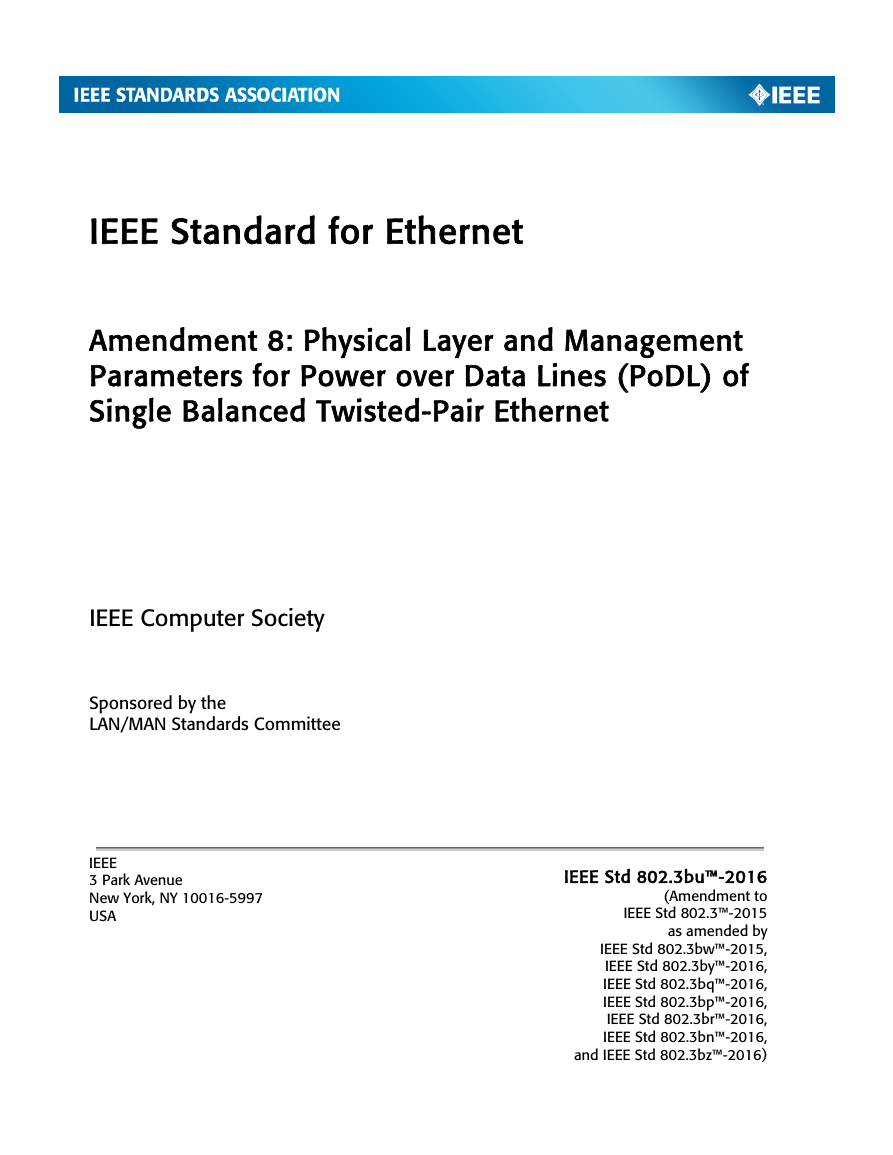
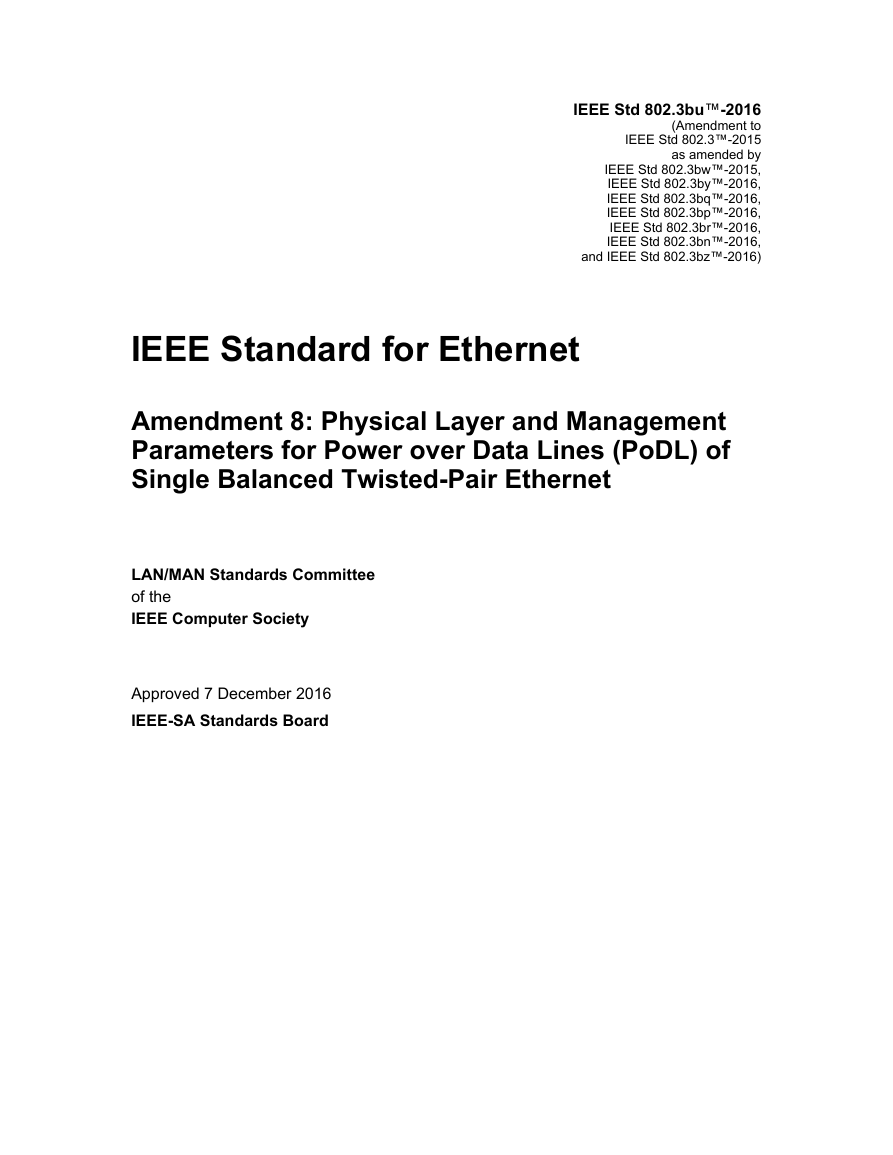
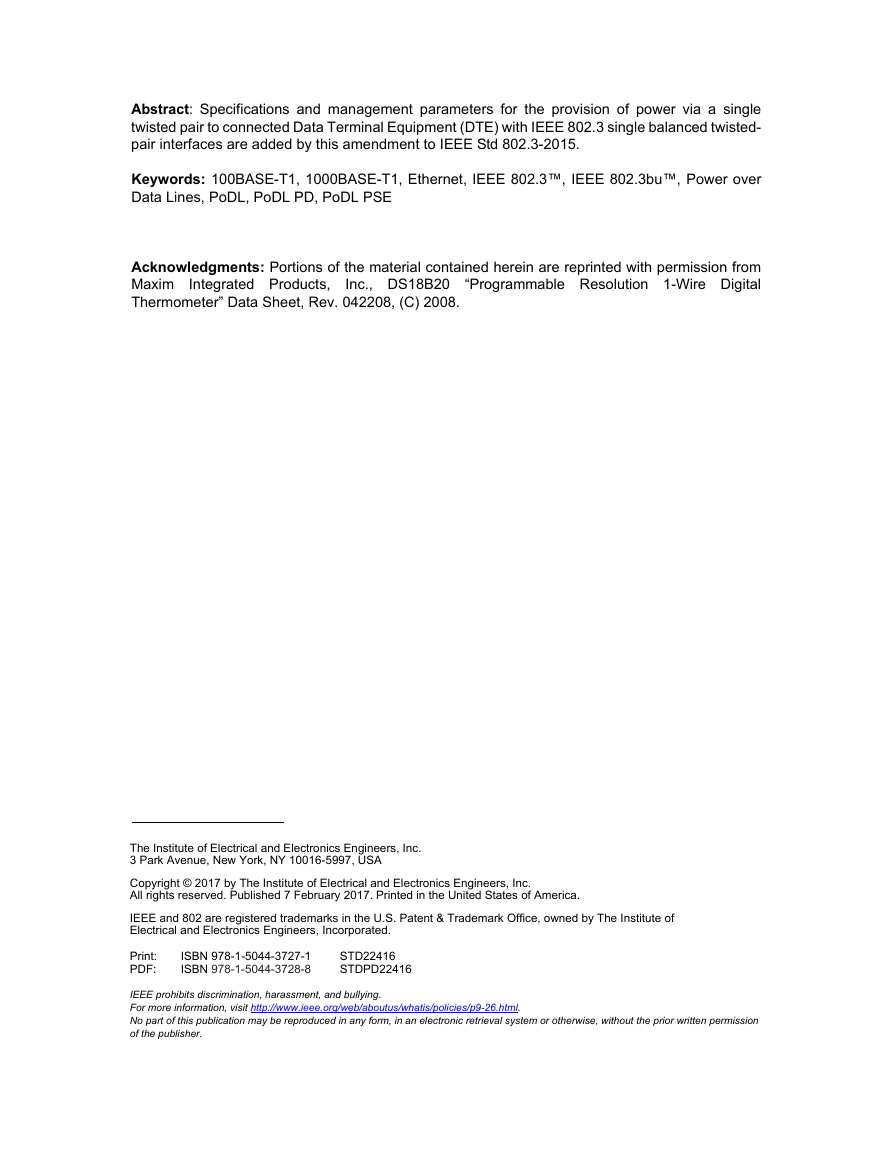
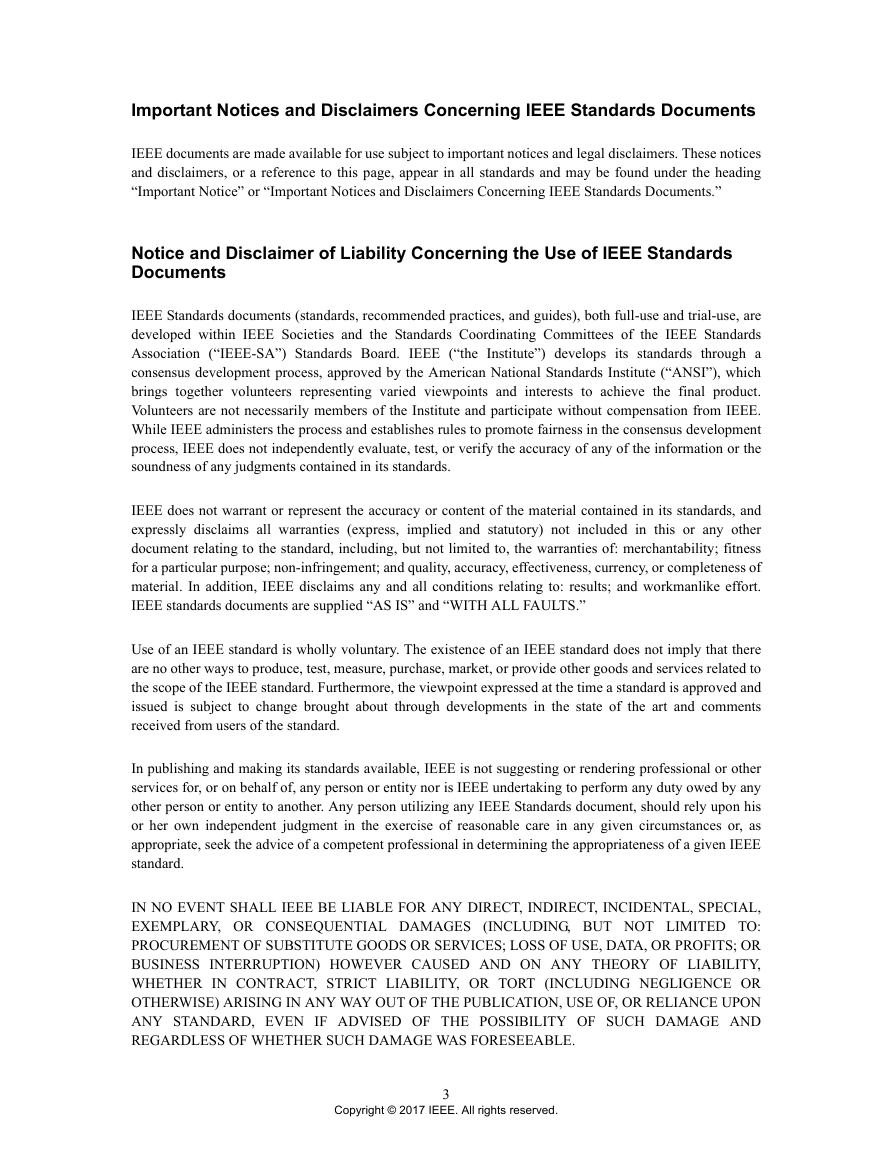
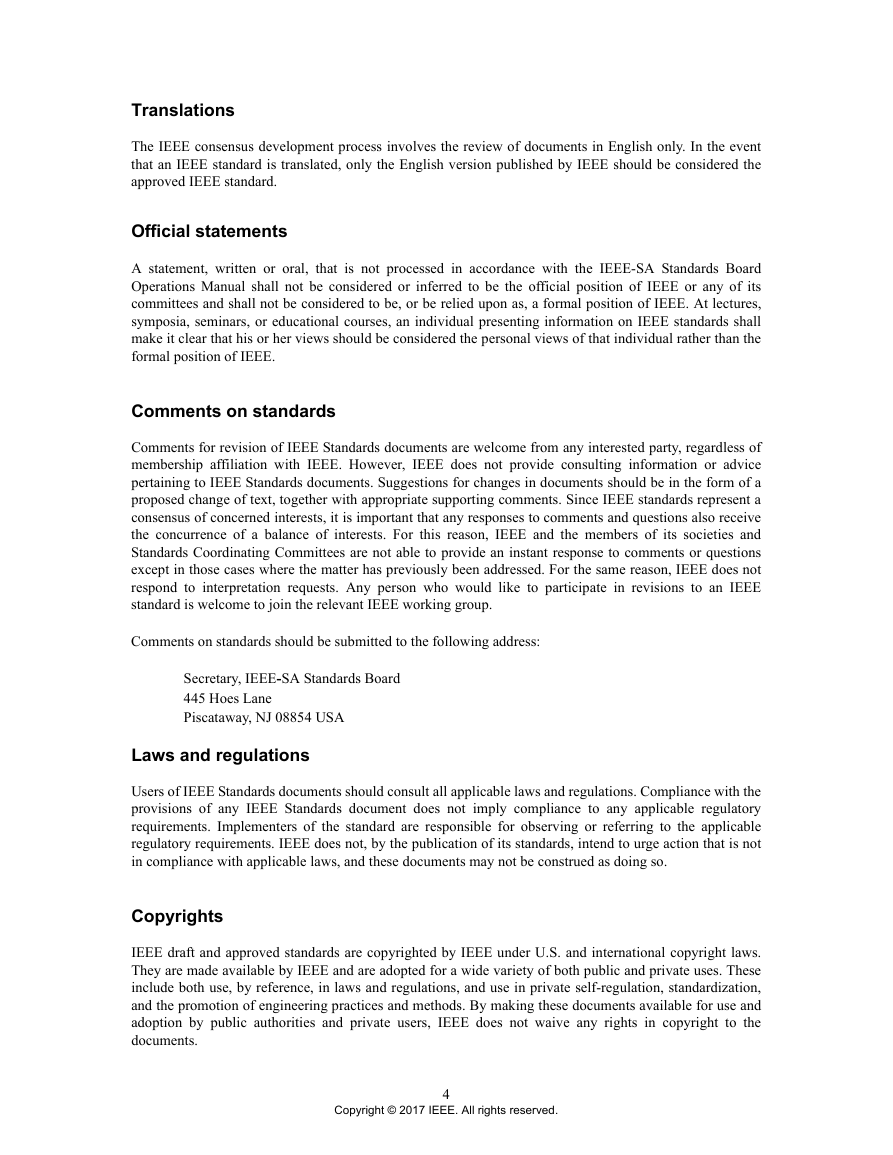
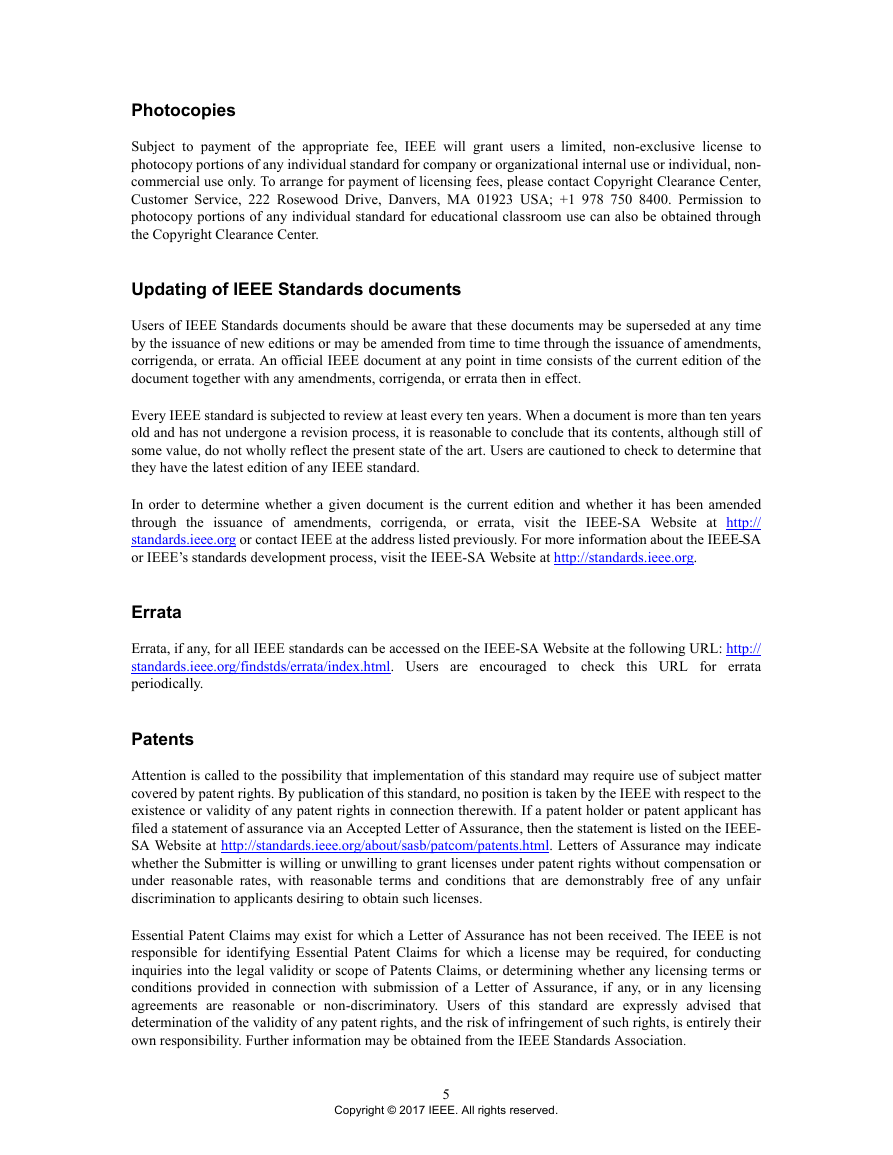
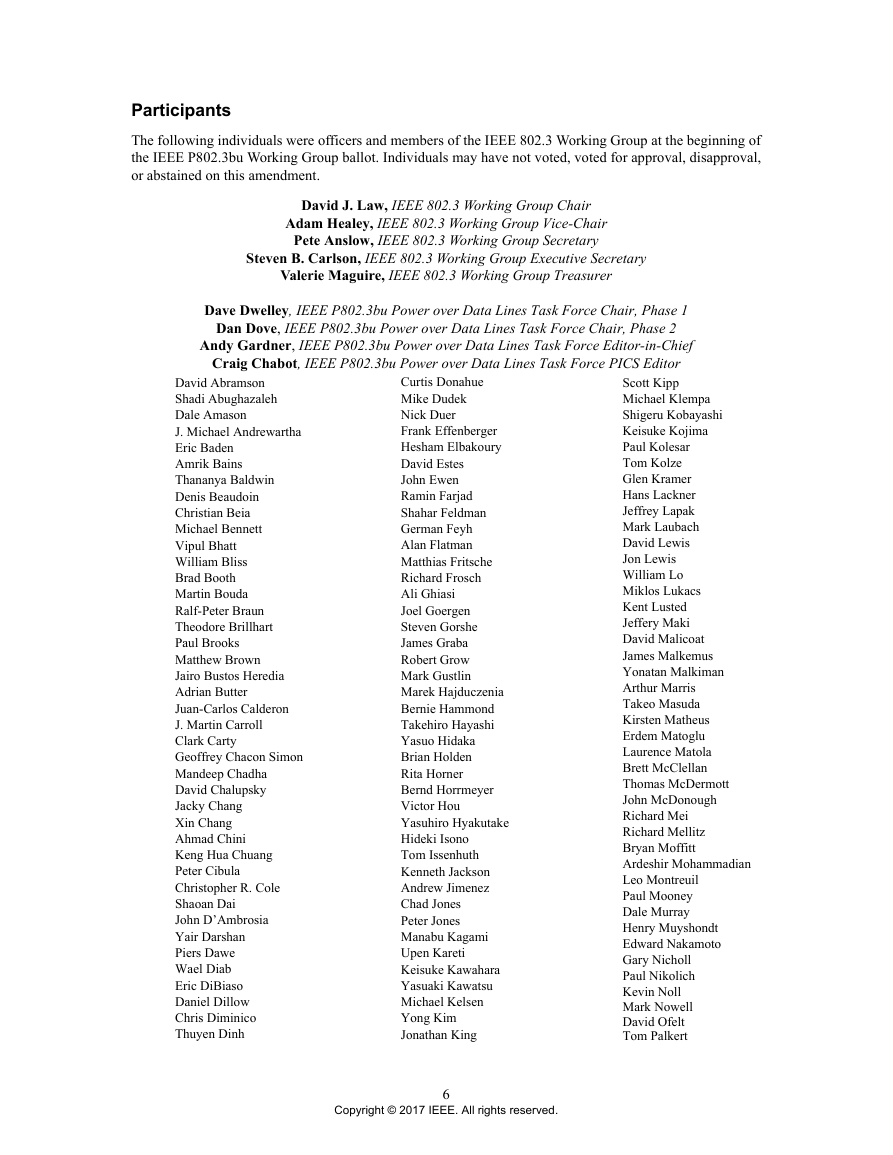
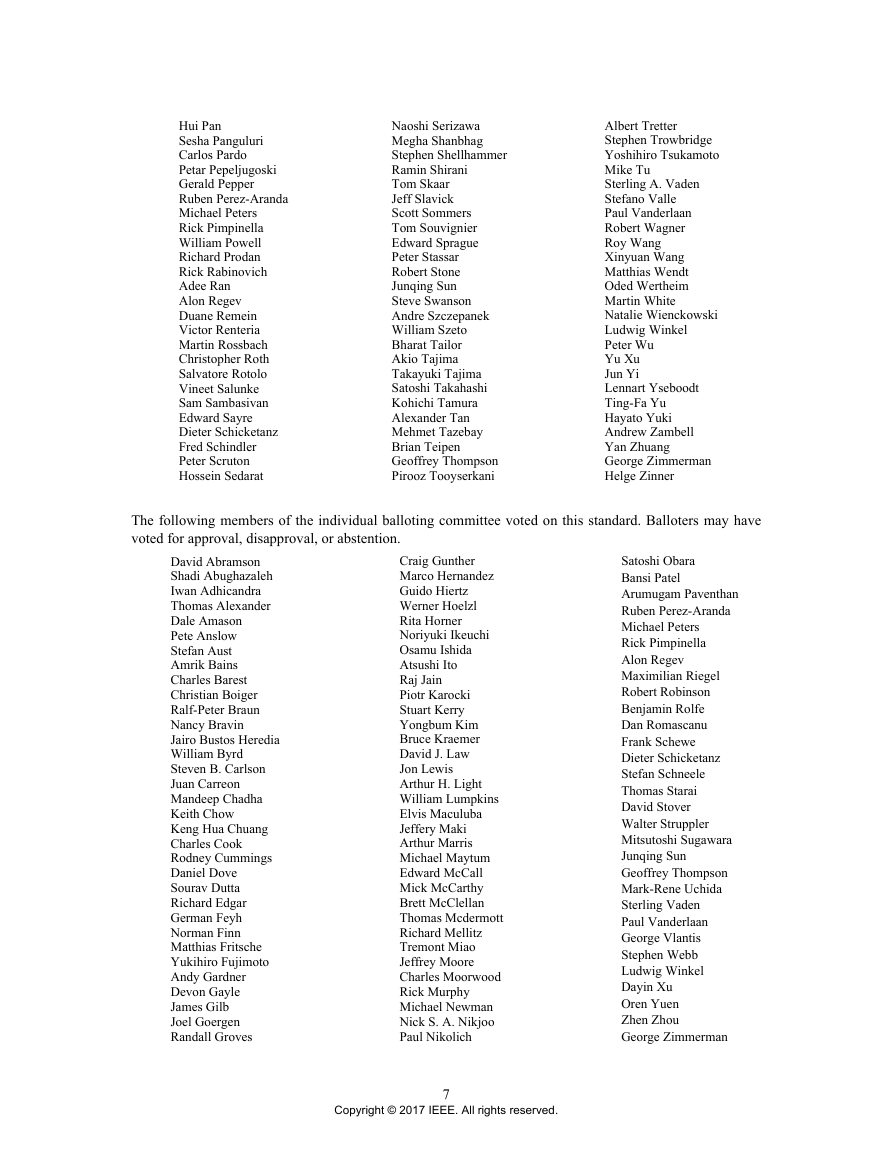








 2023年江西萍乡中考道德与法治真题及答案.doc
2023年江西萍乡中考道德与法治真题及答案.doc 2012年重庆南川中考生物真题及答案.doc
2012年重庆南川中考生物真题及答案.doc 2013年江西师范大学地理学综合及文艺理论基础考研真题.doc
2013年江西师范大学地理学综合及文艺理论基础考研真题.doc 2020年四川甘孜小升初语文真题及答案I卷.doc
2020年四川甘孜小升初语文真题及答案I卷.doc 2020年注册岩土工程师专业基础考试真题及答案.doc
2020年注册岩土工程师专业基础考试真题及答案.doc 2023-2024学年福建省厦门市九年级上学期数学月考试题及答案.doc
2023-2024学年福建省厦门市九年级上学期数学月考试题及答案.doc 2021-2022学年辽宁省沈阳市大东区九年级上学期语文期末试题及答案.doc
2021-2022学年辽宁省沈阳市大东区九年级上学期语文期末试题及答案.doc 2022-2023学年北京东城区初三第一学期物理期末试卷及答案.doc
2022-2023学年北京东城区初三第一学期物理期末试卷及答案.doc 2018上半年江西教师资格初中地理学科知识与教学能力真题及答案.doc
2018上半年江西教师资格初中地理学科知识与教学能力真题及答案.doc 2012年河北国家公务员申论考试真题及答案-省级.doc
2012年河北国家公务员申论考试真题及答案-省级.doc 2020-2021学年江苏省扬州市江都区邵樊片九年级上学期数学第一次质量检测试题及答案.doc
2020-2021学年江苏省扬州市江都区邵樊片九年级上学期数学第一次质量检测试题及答案.doc 2022下半年黑龙江教师资格证中学综合素质真题及答案.doc
2022下半年黑龙江教师资格证中学综合素质真题及答案.doc